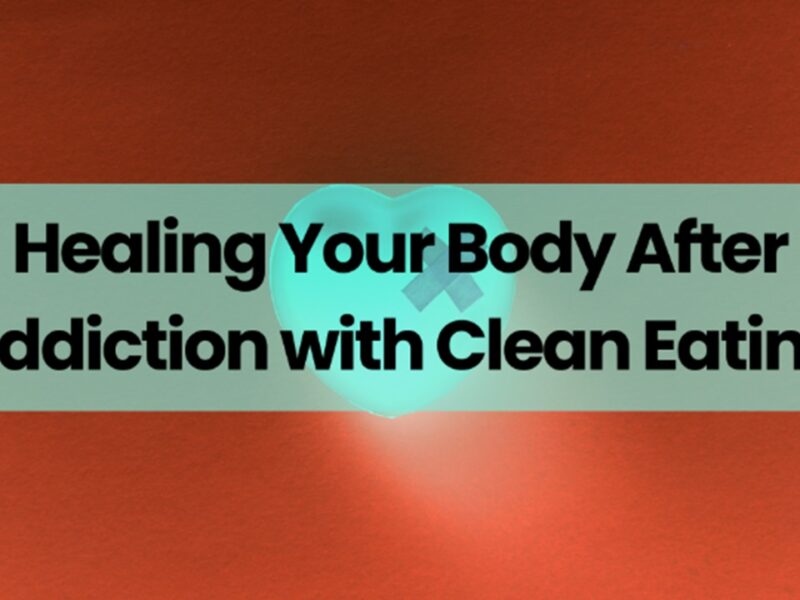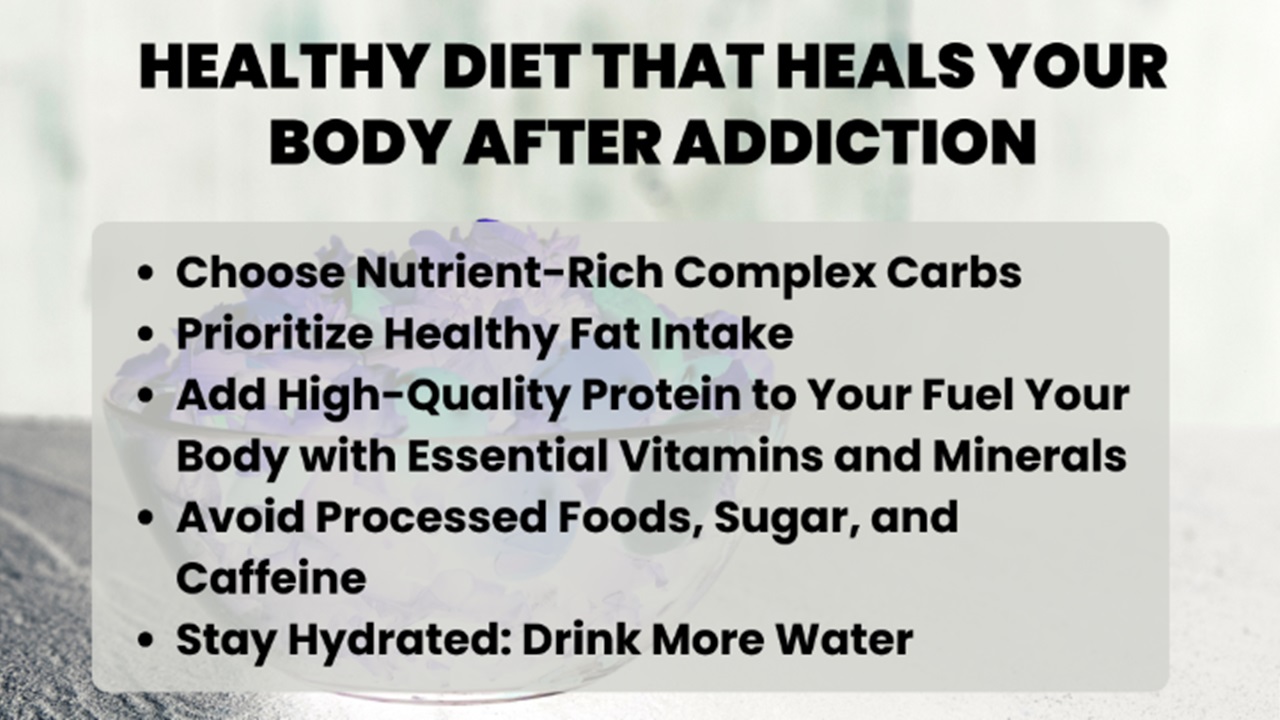Introduction
Addiction is taxing on the body. It strains and depletes the body. Healing after addiction is not simply overcoming addiction; it has several layers to it. Clean eating is one of the layers.
Clean eating habits are generally good for everybody. However, they become even more crucial in the aftermath of addiction. Addiction can take a toll on the body, as the body is doing its “overtime” in eliminating all those toxic substances that one does not put in their body otherwise. Therefore, bringing back the nutritional balance is necessary for detox, recovery, and sobriety.
Impact of Addiction on the Body
Addiction can happen with one or more than one substance. While the causes of addiction are many, and different substances have different effects, they tend to have some common adverse effects on the body:
- Appetite: Most substances lead to a loss of appetite, and the person typically prioritizes consuming these substances over consuming food.
- Poor Food Choices: When a person uses substances, the substance takes priority over everything else. So, the person prioritizes substance use over everything else. This means poor food choices, like sweets or fast food items.
- Hypoglycemia: This refers to low levels of blood sugar, and is the outcome of a poor diet.
- Organ Damage: Substance use can lead to organ damage, especially organs responsible for nutrient breakdown and processing. For instance, liver and pancreas. It can also damage vital organs. This can lead to several health conditions.
- Gastrointestinal Conditions: Substance use leads to chronic problems in the gastrointestinal tract. It is responsible for taking up food and nutrients.
Healthy Diet that Heals Your Body After Addiction
Choose Nutrient-Rich Complex Carbs
Carbohydrates or carbs refer to fiber, grains, starches, and sugars. The best kinds of carbs are known as complex carbs. These break down slowly as digestion begins. They are meant to give the body a boost of energy. A nutrient-rich carbs diet looks like this:
- Fruits
- Vegetables
- Grains
- Whole-grain rice.
Prioritize Healthy Fat Intake
Fats are high in energy. They contribute to cell function and also in the absorption of other nutrients. Not all fats are healthy, but mainly monounsaturated fats and omega-3 fats are good for the body. A diet involving healthy fat involves:
- Avocado
- Chia seeds
- Flaxseed
- Egg
- Fatty fish
- Nuts
- Peanuts
- Oils, like olive oil.
Add High-Quality Protein to Your Meals
Protein is the building block of the body. Many tissues in the body can be damaged by addiction, and a high-quality protein diet is crucial in fixing this damage. Protein-rich foods are:
- Eggs
- Red meat
- Fis
- Nuts.
Fuel Your Body with Essential Vitamins and Minerals
The vitamin and mineral levels in the body become low during addiction, which can lead to stomach and liver damage. Hence, taking supplements may be needed during recovery. Moreover, fruits, vegetables, cereals, whole grains, and lean meats can provide the body with essential vitamins and minerals.
Avoid Processed Foods, Sugar, and Caffeine
Healing the body needs avoiding the wrong types of food as well. Avoid processed foods, sugar, and caffeine. This can lead to:
- Cravings
- Anxiety
- Fatigue
- Hormonal issues
- Weight gain.
Stay Hydrated: Drink More Water
Last but not least, drink plenty of water. Water keeps the body hydrated, and at the same time, it flushes out toxins, keeping the body clean and healthy. Carry a water bottle at all times. Not only does it store water, but it also serves as a reminder to drink water at regular intervals.
Additional Tips on How to Stay Sober
Exercise and Meditation
Along with clean eating, healing the body after addiction requires integrating healthy living practices into life. This involves exercise and meditation, among others. Physical exercise and moving the body boost energy and are also positive for mental health. One does not have to hit the gym right away. In fact, starting small is a good thing. From 15 minutes a day, one can slowly increase it to 1 hour per day.
Meditation, meanwhile, helps the mind to relax and focus. Every day, one can devote 10 – 15 minutes to meditation and can build from there.
Build a Support Network
Building a robust support network is also central to recovery and lasting sobriety. Sometimes, one has to start from scratch and build sober connections. This can be done by living in sober living homes, where structure, support, and a clean environment are provided to aid recovery. At the same time, enrolling in informal peer groups like Alcoholics Anonymous (AA) or Narcotics Anonymous (NA) can find a sense of belonging and community.
Stay Busy
Just what it says: keep busy. With addiction, substance use can take precedence over all else in life, and fatigue becomes the norm. Therefore, keep the body and mind busy. This can be done by working, finding passions and interests and engaging with them, meeting family and friends, attending AA or NA meetings, and so on.
Final Reflections
Addiction can take a huge toll on the body. It depletes the body of nutrients and energy. Therefore, finding nutritional balance is crucial in the aftermath of addiction. This involves eating a healthy diet consisting of carbs, fats, protein, vitamins, and minerals. It also involves keeping the body hydrated and avoiding unhealthy foods.
Along with clean eating, exercising, healthy living practices, and sober connections also contribute to recovery and sobriety.
Want to unlock greater wellness?
Listen to our friends over at the Wellness + Wisdom Podcast to unlock your best self with Drew Canole of Organifi:









 Crumb: The App That Gives You Recipes Based on What You Have
Crumb: The App That Gives You Recipes Based on What You Have